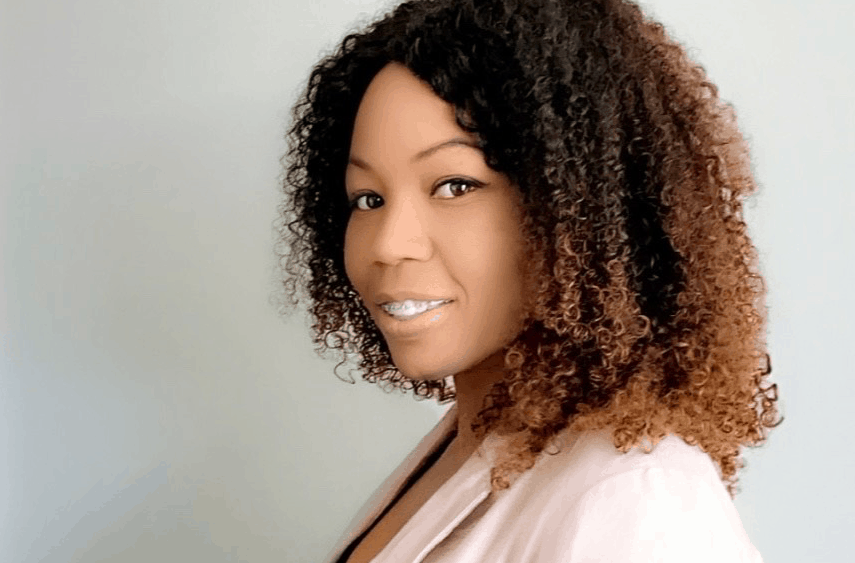[ad_1]
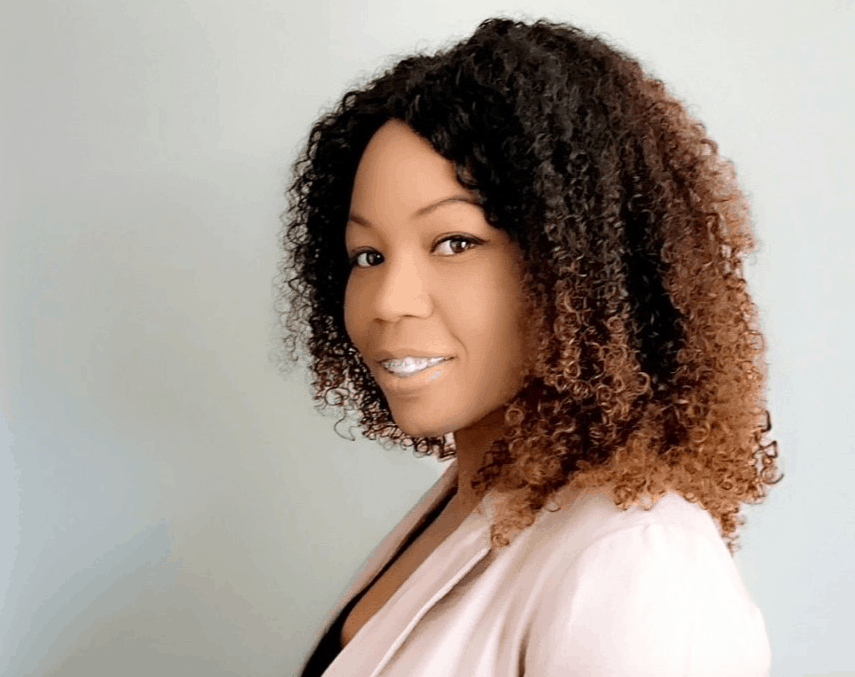
Before Keyva King’s sister Leticia died of
lupus in 2014, Keyva watched the terrible, painful effects of the disease take
its toll on her sibling for nearly two decades. Despite medical marijuana being
legal since the ’90s in California, Leticia resisted using it and eventually
suffered from opioid addiction after being prescribed pain pills to help manage
the symptoms.
“I was there with my sister when she was in
pain,” King recounted. “She was throwing up and couldn’t eat. There’s nothing in
the world that can help you feel better in those moments.”
After Leticia passed, her sister started a nonprofit medical marijuana delivery service in California’s storied Coachella Valley. The tragedy instilled in King an ethos of compassion and dedication that continues to this day in the palace she has since created.
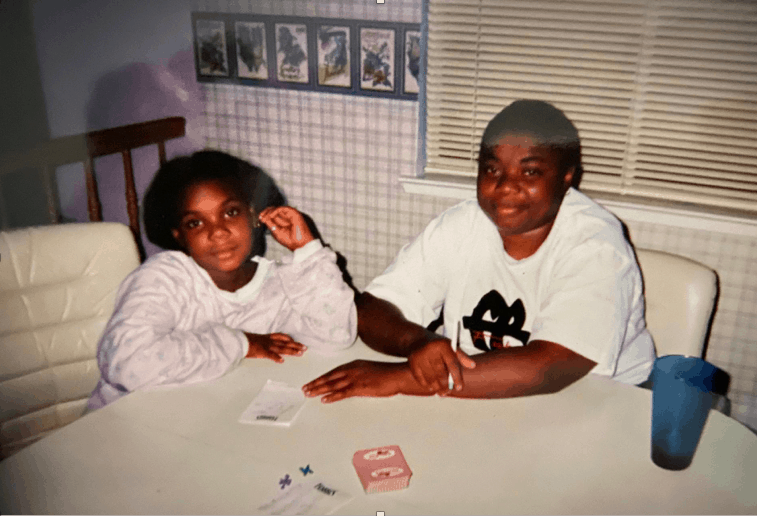
For those unfamiliar with the Coachella Valley, the desert landscape is most famous for the annual Coachella Valley Music and Arts Festival and the resort mecca Palm Springs. It’s also home to thousands of retirees and snowbirds fleeing the cold winters of the northeast. As such, it has a large contingent of an older White conservative population, but King was openly welcomed.
Breaking
Through a Reinforced Glass Ceiling
King spent the next five years networking and
ultimately joined the Coachella Valley Cannabis Alliance Networking,
through which she met lots of entrepreneurs, growers and distributors. She
built a devoted client base largely through word of mouth.
Much of the affection patients feel toward
King and her business are the result of her care and attention to their needs.
With a high percentage of elderly people in the area, there were plenty of
hospice and cancer patients to help.
“I ended up getting into friendships with a
lot of my customers. They would call me; they didn’t have any family or friends,”
says King. I would sit there with them as they tried different products and
wait until they kicked in because I didn’t want to leave them with something
that didn’t work for them. So being able
to help, and change someone’s life, is what I fell in love with.”
When talking to King, the first thing you’ll
note is the combination of kindness and confidence in her voice. Those two
qualities tell the story of what’s made her such a success as a Black woman in
an industry dominated by White men.
Just opening a dispensary is a groundbreaking feat for both women and people of color. According to Bloomberg Businessweek, of the top 20 publicly traded cannabis companies, only two are run by women and just 13 percent of board members are women. Pacific Standard Magazine notes that 81 percent of cannabis executives are White.
For King, gender was a much bigger issue than
her skin color.
“At first, I was scared. I didn’t know how
people would perceive me when I knocked on their doors to do a delivery. I
didn’t want anyone to know my business was owned by someone Black, thinking we
would get a backlash from it, but it was completely the opposite,” she
explains. “I’ve been in the Palm Springs area for six years, and I’ve never
dealt with racism.”
In fact, the patients she delivered to
consistently congratulated her and wanted to know the secret to her success.
But King’s accomplishments as an independent female entrepreneur was too often
met with skepticism and, sometimes, outright sexism. “I’ve had guys who’d be
like, ‘So is this your husband’s store?’ They downplay it and don’t give me
credit or tell me I won’t get the opportunities I applied for on my own,” she
says.
Despite these attitudes, King persisted, and
hopes to become a model for changing the industry to be more inclusive of Black
women.
“Women need to come to the forefront instead
of being behind the scenes,” she opines. “How many women … stepped up to get
in the industry, to actually be in retail? I’ve only met one or two female or
Black dispensary owners, and I go to a lot of networking events. I’ve never
been approached by a woman who wanted to get in the industry.”
She is quick to point out how deeply the power
of White men in the cannabis industry has become entrenched. This is due in
large part to the way venture capital works and the many rules that prevent people
with past drug convictions from working in the legal industry, the unjust
remnants of a war on drugs that has imprisoned Black people at six times the rate of White
people despite similar rates of marijuana use.
King also notes there are changes that need to
be made within the Black community when it comes to marijuana. “People are
scared—scared of change, scared to make a difference. There’s no ambition or
drive in the Black community around cannabis. I can tell you, hands down, I
didn’t have the support for the four and a half, five years that I was going
through this. When people found out what I did, everyone was like, ‘Oh, OK,’
and that was it.”
The biggest challenge to the businesswoman opening her own dispensary, however, was not directly tied to her race or gender; rather, it was the financial barriers she needed the most determination to push through. “The financial aspect is very difficult. Before I got the store I have now, I tried for another city but had to spend upwards of almost $20,000 just to get my application submitted, only to be denied,” she says.
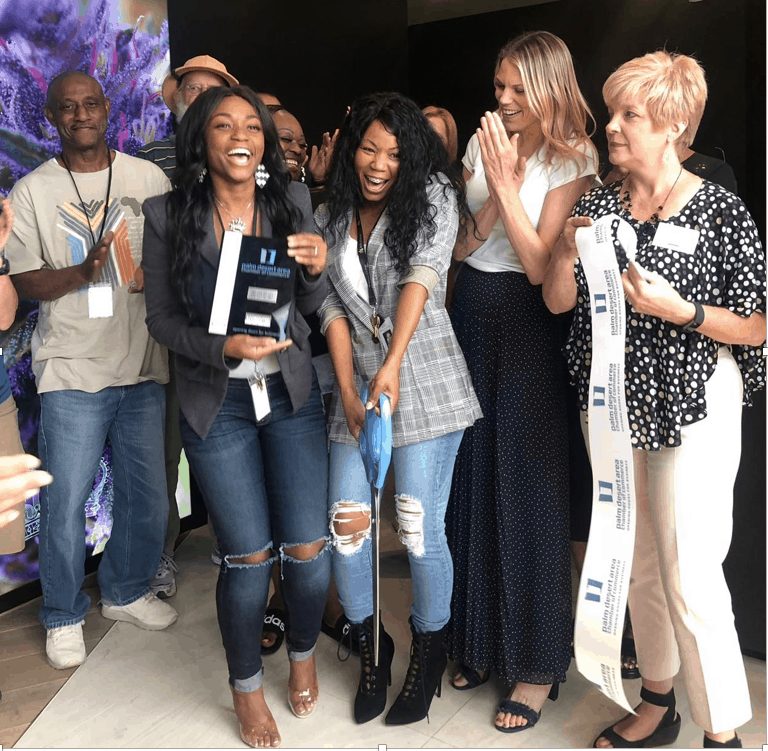
From left: Samuel King (Keyva’s father), Kiyah King (Keyva’s sister), Keyva King, Megan Stone (owner, High Road Design Studio) and Tammy Martin (executive director, Friends of the Desert Mountain)
Photo courtesy of Keyva King
Welcome
to the Cannabis Queendom
When recreational marijuana became legal in
California in 2018, King was honestly surprised but adapted her business to the
new possibilities. For her, it was always about helping people deal with
medical issues, and the dispensary represents a new avenue for doing just that.
She was helped along by her experience in property management (real estate is
one of the biggest challenges for any dispensary, thanks to ever-changing
cannabis business zoning laws).
Despite the financial hurdles and the
years-long struggle to get where she is, King is now the CEO and general
manager of her own dispensary, Royal Highness Cannabis Boutique, in Palm
Desert’s historic El Paseo shopping district.
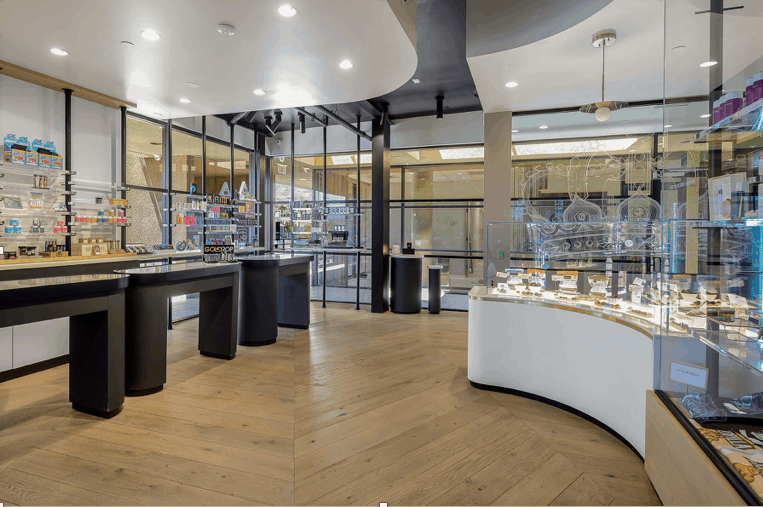
Royal Highness opened in April 2019, but King
has also has big plans for the future: expanding to new storefronts, new states
and offering delivery. She also wants to help pave the way for more Black
entrepreneurs with equity programs such as the California
Minority Alliance, run by cannabis industry pioneer Virgil Grant.
Black dispensary ownership nationwide is
incredibly low—just 1 percent in 2016, according to Leafly.
The Alliance seeks to help expunge past records and help cities pass
legislation for equity loans to minorities to increase those numbers.
This Queen of Cannabis is ready to take on the industry and its inequalities, she’s planning a long reign. All while maintaining her focus on helping the local community and its cannabis patients in addition to the 12 employees who help run the business and make it all happen.
[ad_2]
Source link

